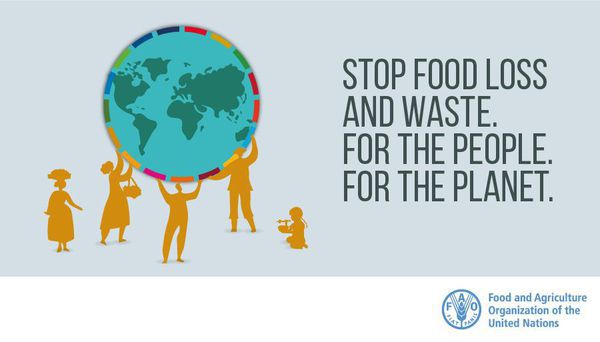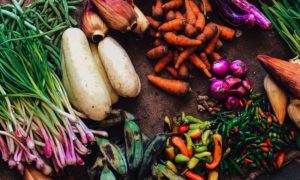Event World Day
International Day of Awareness of Food Loss and Waste 2021
On 29 September, the international community celebrates the International Day of Awareness of Food Loss and Waste, recognizing the fundamental role that sustainable food production plays in promoting food security and nutrition. Across global food systems, food loss and waste is a widespread issue, posing a challenge to food security, food safety, the economy, and environmental sustainability. Actions are required globally and locally to maximize the use of the food we produce.
About
On 29 September 2021, the International Day of Awareness of Food Loss and Waste will be observed for the second time. Reducing food loss and waste is of significant importance as it contributes to the realization of broader improvements to agri-food systems toward achieving food security, food safety, improving food quality and delivering on nutritional outcomes. Reducing food loss and waste also contributes significantly to the reduction of greenhouse gas emissions, as well as pressure on land and water resources.
With less than nine years left to reach SDG goal 12, target 12.3 – by 2030 halve per capita global food waste at the retail and consumer levels, and reduce food losses along production and supply chains, including post-harvest losses – the second observance will highlight the urgent need to accelerate collective action to reduce food loss and waste.

Reducing Food Loss and Waste for a Healthier Planet
Reducing food losses and waste is critical to achieving the sustainable development goals. According to the United Nations and the Food and Agriculture Organization (FAO), globally, around 14% of food produced is lost between harvest and retail. Significant quantities are also wasted in retail and at the consumption level. Around 38% of total energy consumption in the global food system is also utilized to produce food that is either lost or wasted. In addition, it takes seeds, soil and the labor of farmers to produce food, not to mention the fuel that is needed to transport it. All of these resources are lost when food is wasted. Furthermore, the disposal of food loss and waste in landfills leads to greenhouse gas emissions, contributing to climate change. Policymakers can improve the chances of achieving climate goals and limiting global warming to 1.5°C by making more specific commitments to transforming national food systems.
Our dedicated page on Food Loss and Waste dives deeper into issues at the nexus of food systems and the environment. It also lists relevant actions and actors in the Geneva region. Find out more below.
International Year of Fruits and Vegetables
The UN General Assembly designated 2021 as the International Year of Fruits and Vegetables with the objectives:
- Raise awareness of and directing policy attention to the nutrition and health benefits of fruits and vegetables consumption.
- Promote diversified, balanced, and healthy diets and lifestyles through fruit and vegetable consumption.
- Reduce losses and waste in fruits and vegetables food systems.
- Share best practices on consumption and sustainable production of fruits and vegetables that contributes to sustainable food systems; improved sustainability of storage, transport, trade, processing, transformation, retail, waste reduction and recycling; integration of smallholders including family farmers into local, regional, and global production, value/supply chains for sustainable production and consumption of fruits and vegetables; and, strengthening the capacity of all countries, specially developing countries, to adopt innovative approaches and technology in combating loss and waste of fruits and vegetables.
Events

International Day of Awareness of Food Loss and Waste
29 September 2021 | 16:00 CEST | Online | FAO

